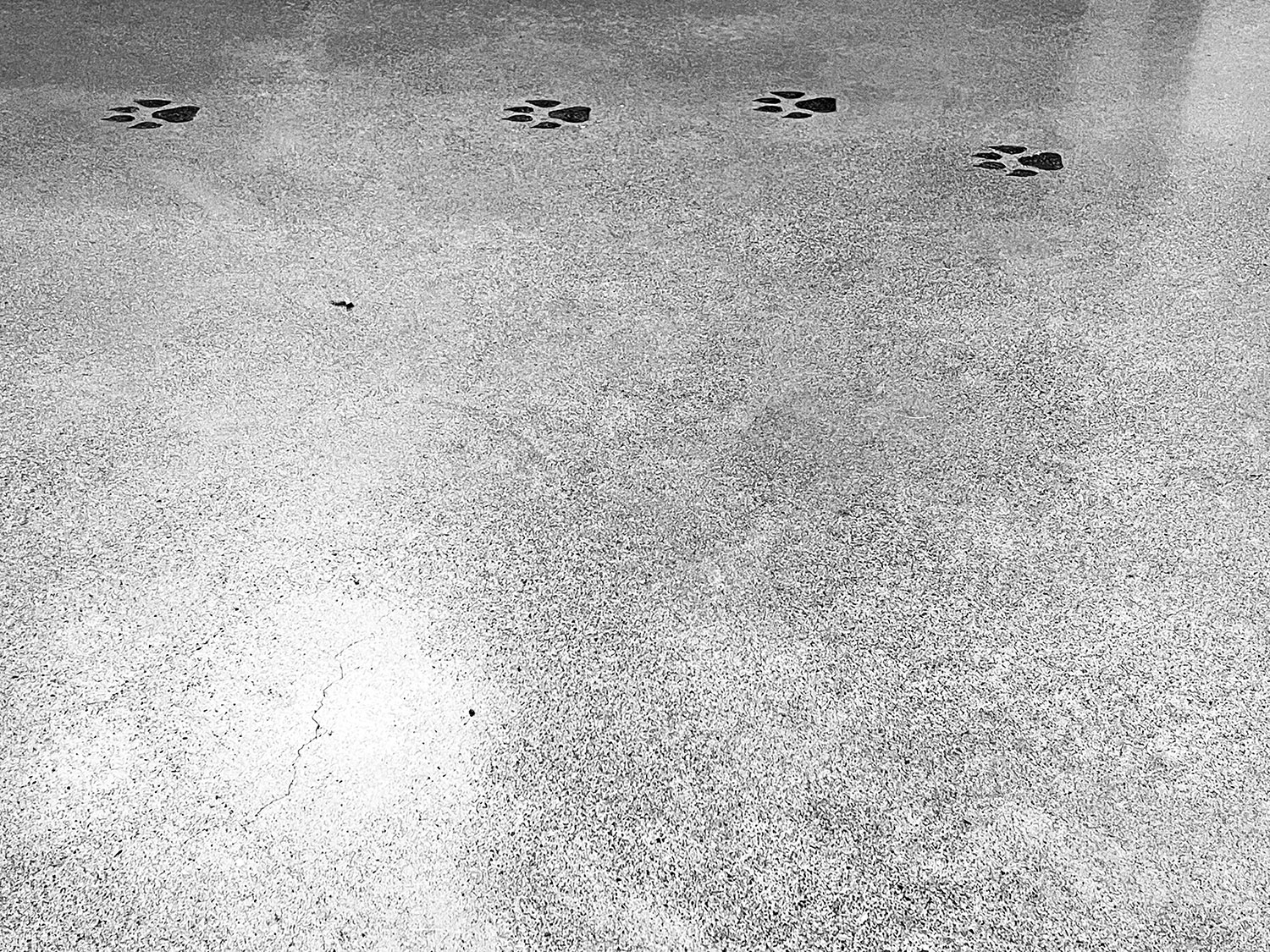loose leash

My mind wanders from the moment, chasing down fragments and details, irrelevant to action, much as the dog likes to pause and sniff each frond and spore of the sword ferns that line the forest path. The vet at emergency services explains, in great detail that really contains no detail, the nature of the dog’s injury – a tear of the cranial cruciate ligament.1 The vet, tidy and a little tired, assumes no real knowledge of the particulars of canine anatomy, which is the efficient choice, and the distinction of cranial/caudal rather than anterior/posterior snags my attention (cauda, -ae, f., tail, my brain supplies unhelpfully). Thus, when I should be paying full attention to the breakdown of the estimate of the significant costs required to return the poor creature to near normal mobility (with the caveat that the other leg is likely to suffer the same injury in the next twelve months), I am instead thinking about how seldom lately I meaningfully encounter Latinities in daily life (usually, too, in a legal or medical context, which does not add to the attraction). The exception being Spinoza’s Ethics, for which I occasionally dabble with the original, although I am generally content to remain cribb’d in translation. This leads me to ponder, as the vet describes the potential surgery (which has since become actual), the affect of sorrow, tristitia, which Spinoza defines (I think) not as sadness per se, but as the reduction of the ability to act. The dog, then, is suffering the affect of sorrow, for she can no longer gambol as once she did; I suppose I, too, am suffering the affect of sorrow, but mostly I just feel a bit sad about it.
- We do not learn until the meeting with the surgeon, that the crux here is the crossing of the two ligaments in the joint, which is again neat, but not helpful for decision-making. [↩]
